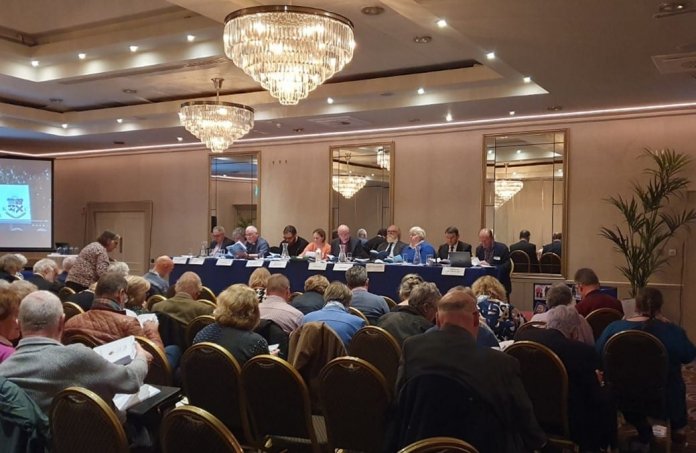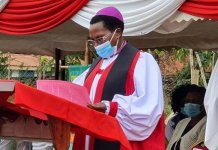A third diocesan synod has voted to ask the Irish General Synod to authorize same sex blessings. Meeting at the Tower Hotel in Waterford on 18 Oct 2023 the synod of the Diocese of Cashel, Ferns, and Ossory adopted a resolution asking the national church allow a local option for dioceses to authorize the blessings.
In his first presidential address as bishop, the Rt. Rev. Adrian Wilkinson told the synod he saw the church as a spiritual boat. “Let us not be so focused on the process of building the boat that we forget the joy of sailing.”
“Yes, we need to construct the vessel and make sure that it is seaworthy and that is a lot of what today is about. But we also need to look up and out to the sea and the far horizon. We need to remember the thrill and adventure of sailing the high seas to journey beyond the horizon and perhaps to experiences and encounters we cannot yet imagine. Under God let us go home this evening encouraged by all that has been done and have vision and enthusiasm for what potentially lies ahead.’
The motion introduced by the Dean of Ossory, the Very Rev. Stephen Farrell stated:
“This Synod, while acknowledging the Church’s traditional teaching on marriage as set out in the Book of Common Prayer, believes that pastoral and liturgical provision should be made for those persons of the same sex, whose relationships have been previously recognised by law, and who wish to have an appropriate service of prayer and dedication.
This Synod therefore requests that the General Synod and House of Bishops allow some measure of Diocesan discretion in the provision of suitable prayers for use where such services are locally desired and acceptable, and where no priest or minister would be required to act against their conscience.”
After debate that was largely in favor of the motion, the motion passed 101 in favor to 8 against.
Although three of Ireland’s dioceses: Tuam, Limerick and Killaloe, Dublin and Glendalough, and Cashel, Ferns and Ossory, have passed resolutions asking the general synod to adopt gay blessings at their 2024 meeting, such a resolution is unlikely to pass as a supermajority of Irish Anglians reside in the conservative northern dioceses and would reject any change to church teaching.










